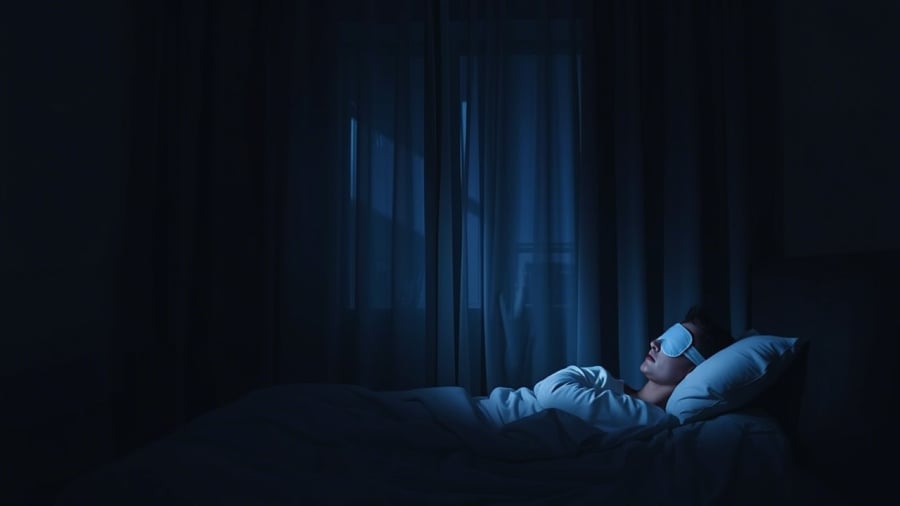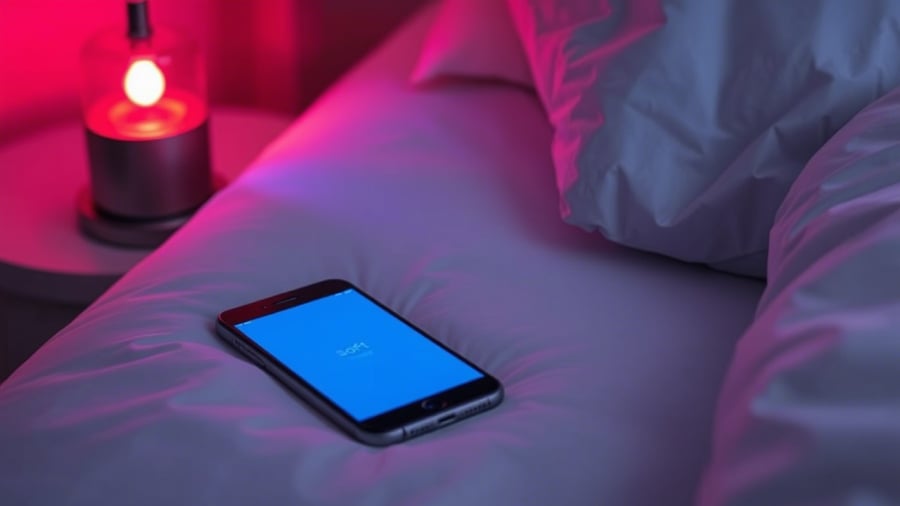## The Dark Side of Lights at Night: How Your Sleeping Habits Affect Your Health
Did you know that the habit of sleeping with lights on can not only disrupt your sleep but also increase your risk of diabetes and cardiovascular issues? A large-scale study has revealed a notable link between artificial light in the bedroom and the body’s ability to regulate blood sugar. Join me as we explore these fascinating insights and hear from experts to better understand how to protect our health while sleeping.
Nighttime Light: The Hidden Health Hazard
A study published in Diabetologia has grabbed the attention of the global medical community. Researchers at Ruijin Hospital in China surveyed nearly 100,000 adults with an average age of 42.7 years old. Results indicated that exposure to artificial light at night can impair the body’s ability to regulate blood sugar, thereby increasing the risk of developing diabetes.
Worryingly, it is estimated that over 9 million cases of adult-onset diabetes in China may be associated with sleeping in lit rooms. This is a truly alarming figure!
Reinforcing this, another study published in the Proceedings of the National Academy of Sciences (PNAS) reached similar conclusions. Researchers at Northwestern University monitored 20 young adults and found that those who slept with strong light had higher insulin resistance compared to those sleeping in darkness. Insulin resistance leads to elevated blood glucose levels, setting the stage for diabetes and other chronic conditions.
According to Dr. Nguyen Thi Van Anh, Director of Bach Nien Y Hoa Duong Traditional Medicine Center, artificial light at night not only affects melatonin, the hormone regulating sleep cycles, but also interferes with other hormones like insulin. “When the body lacks melatonin, sugar metabolism is disrupted, leading to high blood sugar,” she explained in an interview with VnExpress.

Double Trouble: From Diabetes to Obesity and Heart Disease
In addition to the risk of diabetes, a 2019 study of over 40,000 women also found that sleeping with light from the TV or a night light increased the likelihood of weight gain and obesity. This is particularly noteworthy as obesity is a leading risk factor for heart disease and diabetes.
Dr. Le Thi Hai, former Director of the National Institute of Nutrition, emphasized in an article in the Health and Life newspaper: “The habit of sleeping with lights on not only causes hormonal imbalances but also disrupts our body clock, directly affecting overall health.”
Minimizing Artificial Light Exposure at Bedtime
So, how can we protect ourselves from the harmful effects of artificial light? Here are some simple yet effective suggestions:
- Position your bed away from the window: Use thick curtains to block out external light.
- Wear a high-quality eye mask: If there’s still ambient light, opt for a comfortable eye mask.
- Limit electronic devices: Stay away from TVs, phones, and laptops before bedtime. If necessary, enable “night light” modes or set a timer to turn them off.
- Dim the lights gradually: About 2-3 hours before bedtime, reduce the lighting in your living space to prepare your body for rest.
- Choose appropriate lighting: If you need to keep a light on, prefer red or soft brown light, and place it low near the floor to avoid disrupting your body clock.

Natural Sleep Improvement Tips
In addition to minimizing light exposure, you can also try the following methods to improve your sleep quality:
- Adjust your bedroom temperature: Maintain a cool temperature of 15.6°C to 19.4°C to facilitate deep sleep.
- Take a warm shower: Showering 1-2 hours before bedtime helps lower body temperature, signaling to your brain that it’s time to rest.
- Practice the 4-7-8 breathing technique: This relaxes the nervous system and reduces stress. Inhale through your nose for 4 seconds, hold your breath for 7 seconds, then exhale through your mouth for 8 seconds. Repeat this cycle 3-4 times.
In Conclusion
Sleeping correctly not only keeps you alert the next day but also plays a crucial role in maintaining long-term health. Remember, quality sleep requires a supportive environment – one free from disruptive artificial light.
Start making changes today to protect your health and that of your loved ones!
The Ultimate Guide to a Good Night’s Sleep: Uncover the Ancient Feng Shui Secret That Transforms Your Bedroom Into a Haven of Rest.
A good night’s sleep is essential for overall well-being, but achieving restful slumber can be elusive for many. If you find yourself struggling with sleepless nights or experiencing anxiety during sleep, try incorporating these simple tips into your routine for a more peaceful and rejuvenating sleep experience.
A Delicious and Nutritious Vietnamese Treat: Banh Chung, But a Big No-No for These 7 Types of People
It is important to note that there are certain individuals for whom eating Banh Chung can be detrimental to their health. This traditional Vietnamese dish, a sticky rice cake wrapped in banana leaves and filled with mung beans and pork belly, is a delicious treat but may not suit everyone’s dietary needs or restrictions.





































